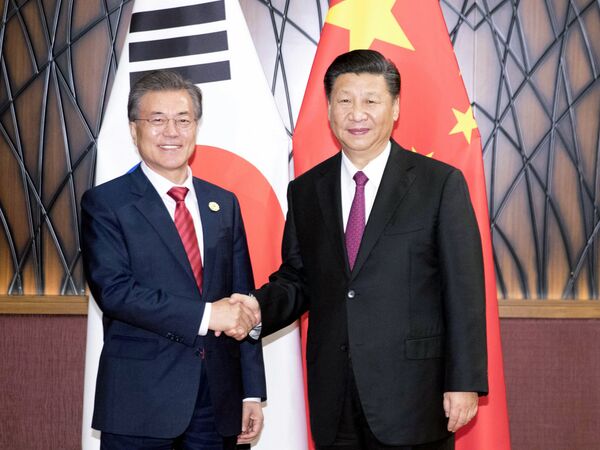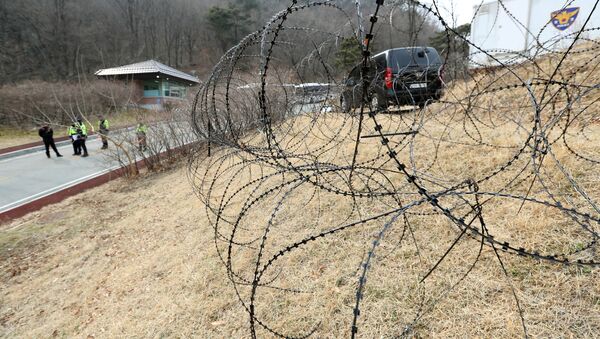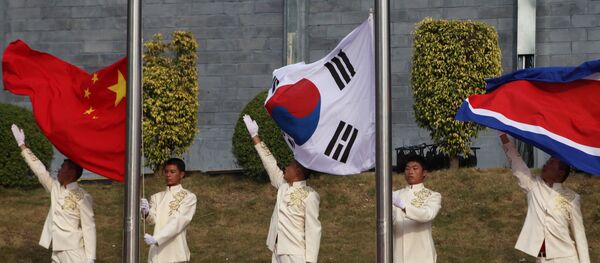The developments of the past week may mark a turning point in Chinese-South Korean relations, after their ties have been overshadowed by a standoff over the deployment of a US anti-missile system, an article in The South China Morning Post read.
On Saturday, South Korean President Moon Jae-in ended his visit to China. The two sides agreed to join efforts to reach a peaceful resolution to the North Korean nuclear crisis.
"We should say, springtime is expected. We also all want China and South Korea relations to move forward in a stable and healthy manner," Chinese Prime Minister Li Keqiang said.
Relations between Seoul and Beijing soured nearly a year ago over the deployment of the Terminal High Altitude Area Defense (THAAD) in South Korea. The Pentagon said the deployment was due to the possible nuclear and missile threat from North Korea. Beijing, however, insists that the THAAD could be directed against China and the deployment will not help ease tensions on the Korean Peninsula. In response to the THAAD installation, Beijing imposed sanctions on South Korean companies working in China.
READ MORE: South Korean President Says Pyongyang's Nuclear Program Threatening China
In late October, South Korea and China agreed to mend ties and normalize business and trade exchanges.
Following the recent visit, the South Korean president’s office said that Moon Jae-in and his Chinese counterpart Xi Jinping have agreed on a four-point set of principles to find a peaceful solution to the crisis on the Korean Peninsula through negotiations. Xi also agreed to work with Seoul to pressure Pyongyang to return to the negotiating table.

Cheng Xiaohe, an associate professor of international relations at Renmin University in Beijing, pointed out this landmark turn in Beijing’s policy.
"There was no such consensus between China and South Korea before," Cheng told the South China Morning Post. "Now it seems China has made some changes to its stance on pressuring North Korea and strictly implementing UN sanctions, which was something South Korea wanted."
Lee said that in economic terms, China and South Korea are competing intensely on the global market, but what is more important is the security issue.
"China is becoming strong … and is seeking a leadership role in the international community, which means the strategic rivalry between China and the US is expected to be more substantial," the analyst said, adding that the THAAD deployment is likely to remain a potential thorny issue in bilateral relations.



